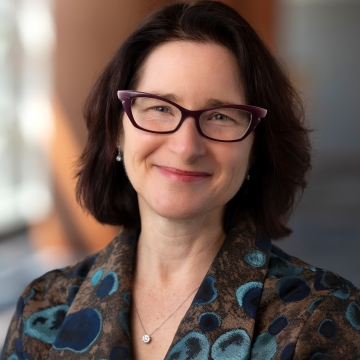Master of Science in Public Health (MSPH) in Health Education and Health Communication
Offered By: Department of Health, Behavior and Society
Onsite | Full-Time or Part-Time | 1.5–2 years
About the MSPH in Health Education and Health Communication Program
This program provides specialized formal academic training in health education, health promotion, and health communication, with an emphasis on strategies for working with individuals, organizations, and communities. Students are equipped with advanced skills in program planning, implementation, and evaluation, as well as a solid foundation in behavioral science principles and theories.
For the final requirement of this program, students complete a practice-based proposal on a topic relevant to their field placement and an oral presentation. Students are eligible to sit for the national certification exam to become Certified Health Education Specialists. Part-time applicants are welcome.
This is a STEM-designated program.
MSPH in Health Education and Health Communication Program Highlights
STEM DESIGNATED PROGRAM
The MSPH in Health Education and Health Communication is a STEM-designated program.
6-month field placement experience
to prepare for domestic and international career opportunities
knowledge and skills in health education and health communication
to advance the future of the field
Eligibility to sit for the CHES national certification exam
to become Certified Health Education Specialists
What Can You Do With a Graduate Degree In Health Education and Health Communication?
Visit the Graduate Employment Outcomes Dashboard to learn about Bloomberg School graduates' employment status, sector, and salaries.
Sample Careers
- Communication Specialist
- Research Program Coordinator
- Training Manager
- Patient Outreach Coordinator
- Evaluation Specialist
- Program Director
- Population Health Research Associate
Curriculum for the MSPH in Health Education and Health Communication
Browse an overview of the requirements for this master's program in the JHU Academic Catalogue, explore all course offerings in the Bloomberg School Course Directory, and find many more details in the program's Student Handbook.
Admissions Requirements
For general admissions requirements, please visit the How to Apply page. This specific program also requires:
Prior Coursework
College-level math course equivalent to Algebra or higher
Standardized Test Scores
Standardized test scores are not required and not reviewed for this program. If you have taken a standardized test such as the GRE, GMAT, or MCAT and want to submit your scores, please note that they will not be used as a metric during the application review. Applications will be reviewed holistically based on all required application components.
Program Faculty Spotlight

Vanya Jones, PhD ’06, MPH, a health education researcher, employs social and behavioral science methods to create, implement, and evaluate behavior change programs.

Joanna Cohen, PhD, MHSc, is Chair of the Department of Health, Behavior & Society. She conducts research and capacity building to inform and advance interventions to eliminate tobacco-caused death and disease.

Eileen McDonald, MS, uses education, communication, product design, policy, and professional development to create a healthier and safer world, especially for children.

Tuition and Funding
The Master’s Tuition Scholarship is available to students in good academic standing in a two-year, full-time master’s program. The MTS is a 75% reduction in tuition for year two of an eight-term program.
Additionally, Johns Hopkins University, thanks to support from Bloomberg Philanthropies, offers need-based scholarships for students enrolled in an MSPH program (full-time program only). These need-based scholarships, which cover up to 50% of tuition costs in the first year of study, will enable the best and brightest students with an interest in public health to obtain the highest-quality professional public health education available. Students who are first-generation graduate students, and have exceptional undergraduate academic records, will be prioritized for this need-based scholarship.
To be considered for an MSPH need-based scholarship, applicants should submit their SOPHAS application and supporting documents no later than March 1, along with the CSS profile to the Financial Aid Office using code 5315. Applicants should indicate their interest in the scholarship by answering “yes” to the school specific question in their SOPHAS application for the MSPH program (full-time program only) of their choice.
Contact Us
Questions about the program? We're happy to help.
Application and Admissions Procedural Questions
Please direct questions about application and admissions procedures to the BSPH Admissions Office.
Email: bsph.admissions@jhu.edu
Phone: 410-955-3543
General Academic Questions
For general academic questions about the MSPH in Health Education and Health Communication, please contact our Department's academic program administrator, L. Robin Newcomb.
Email: HBS_Admissions@jhu.edu

